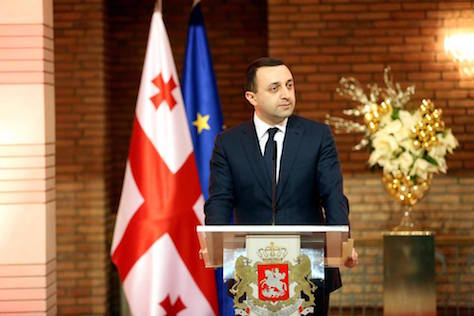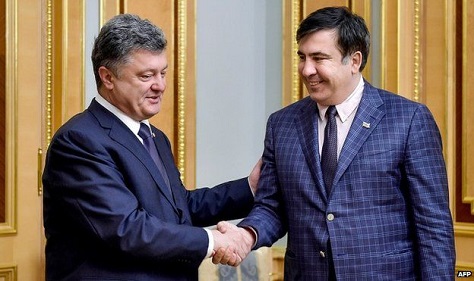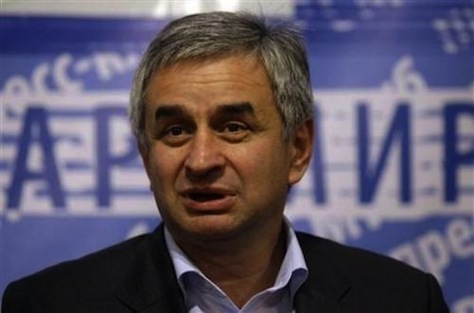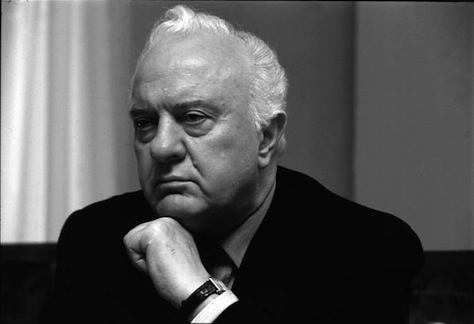
Though the disparate groups who hold power today in Tbilisi rode to power three years ago as the ‘Georgian Dream’ coalition, life for them is quickly devolving into something more like a nightmare.![]()
With fresh elections due in October 2016, prime minister Irakli Garibashvili resigned abruptly on December 23 after just over two years in office (and at the ripe old age of 33). The political crisis has left Georgia, including both the government’s supporters and detractors, stunned. Giorgi Kvirikashvili, foreign minister only since September 2015 and, formerly, the minister of economy and sustainable development, became Georgia’s new prime minister-designate on Christmas Day. Like Garibashvili, he’s a political unknown with longtime ties to Ivanishvili, formerly the head of the Ivanishvili-owned Cartu Bank.
Before ascending to power, Garibashvili was a longtime employee of Bidzina Ivanishvili, the billionaire who financed the Georgian Dream (ქართული ოცნება) coalition, united mostly by its opposition to the policies and anti-Russian orientation of Georgia’s former president Mikheil Saakashvili. Garibashvili rose quickly in the new order after the Georgian Dream coalition won the 2012 parliamentary elections. While Ivanishvili himself held the premiership between October 2012 and November 2013, it was Garibashvili, by then a trusted Ivanishvili adviser, who took the pivotal role of minister for internal affairs. In that position, barely out of his twenties, Garibashvili was tasked with ‘reforming’ the Georgian police forces, though he spent more time throwing several former Saakashvili era officials in prison.
When Ivanishvili decided to step aside from frontline politics, no one believed that he was necessarily ceding control of Georgia’s new government, and Garibashvili never truly shook the impression that he was really just a puppet serving at Ivanishvili’s pleasure. That impression will be even harder to shake now, with tongues wagging that it was Ivanishvili who ordered Garibashvili’s resignation.

It isn’t an outrageous leap to believe that Ivanishvili is still calling the shots in Georgia’s government, nor is it unrealistic that he is eager to shake up Georgian politics, above all to protect his return on investment as fresh elections beckon.
Garibashvili never had much of a political power base independent of Ivanishvili. Moreover, he often clashed with Giorgi Margvelashvili, Gerogia’s president, who easily won the October 2013 presidential election (to what is now a mostly ceremonial office, thanks to reforms in the last year of the Saakashvili era that transferred power from the presidency to the parliament). Margvelashvili, formerly a little-known academic and former education and science minister, owes his position, like Garibashvili, mostly to Ivanishvili and his bankroll, though he is nominally an independent and he has demonstrated his willingness to disagree with Ivanishvili publicly from time to time.
It’s no surprise to anyone that the Garibashvili-led government has struggled for the past two years. The economic expansion of the Saakashvili years, with its technocratic zeal for improving infrastructure and attracting foreign development, are now a long-faded memory. Inflation is up, GDP growth is stagnant by the standard recent trends (now expected to be less than 3% and far below the 5% prediction earlier this year) and Georgia’s currency, the lari, is down — by nearly 40%, compared to the US dollar in the last 15 months. Garibashvili’s government has lurched between the rhetoric of reform and a far more unfocused reality, given the varied perspectives among the nationalists, socialists and liberals that comprise the many parties that comprise the Georgian Dream coalition.
His government is also tainted with the appearance of incompetence. Flash flooding in June 2015 caused a devastating humanitarian crisis in the Georgian capital of Tbilisi, but it also wiped out the national zoo, killing many animals and letting many others escape, leading to surreal photos throughout the international media of a hippopotamus (among other beasts) stomping through city streets. Continue reading Garibashvili’s resignation in Georgia a reboot for ruling ‘Dream’ coalition




